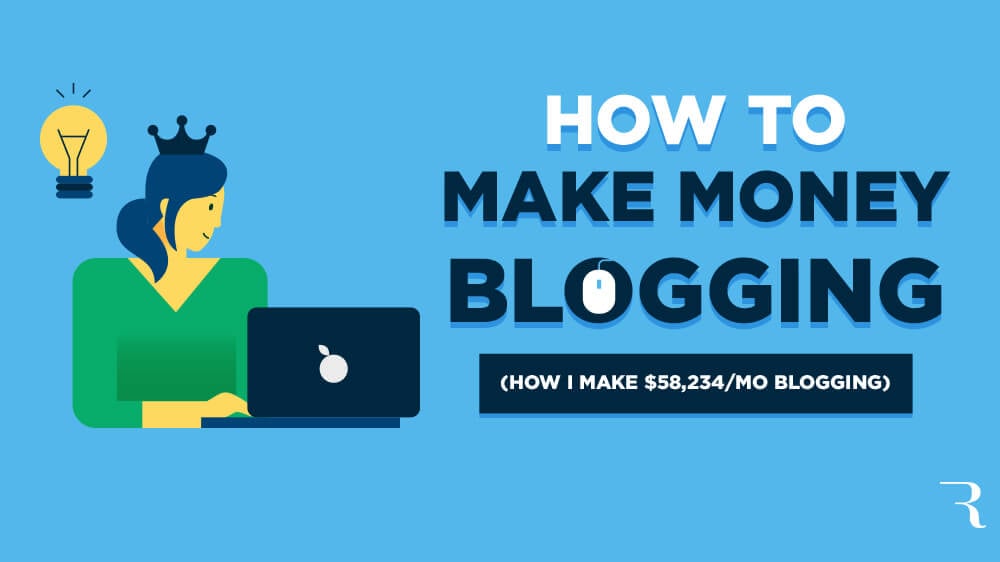What Influences a Blogger’s Earning Potential?
When it comes to determining how much bloggers earn, several factors come into play. A blogger’s earning potential is influenced by their niche, audience engagement, content quality, and monetization strategies. For instance, bloggers in high-demand niches such as finance, health, and technology tend to earn more than those in less competitive niches. Additionally, bloggers who create high-quality, engaging content that resonates with their audience are more likely to attract and retain a loyal following, which can lead to increased earnings.
Audience engagement is also a crucial factor in determining a blogger’s earning potential. Bloggers who actively engage with their audience through social media, comments, and email newsletters tend to build a loyal following, which can lead to increased earnings through affiliate marketing, sponsored content, and product sales. Furthermore, bloggers who have a strong understanding of their audience’s needs and preferences are better equipped to create content that resonates with them, leading to increased engagement and earnings.
Monetization strategies also play a significant role in determining a blogger’s earning potential. Bloggers who diversify their income streams through affiliate marketing, sponsored content, product sales, and membership sites tend to earn more than those who rely on a single source of income. For example, a blogger who earns $1,000 per month through advertising may be able to increase their earnings to $5,000 per month by adding affiliate marketing and sponsored content to their monetization strategy.
Understanding these factors is essential for bloggers who want to increase their earning potential. By focusing on creating high-quality content, engaging with their audience, and diversifying their income streams, bloggers can increase their earnings and build a successful online business. Whether you’re a seasoned blogger or just starting out, understanding what influences a blogger’s earning potential is crucial for achieving success in the blogging world.
Many bloggers wonder how much they can earn from their blog, and the answer varies widely depending on the factors mentioned above. However, by understanding what influences a blogger’s earning potential, bloggers can take steps to increase their earnings and build a successful online business. With the right strategy and mindset, bloggers can earn a significant income from their blog and achieve their financial goals.
How to Build a Profitable Blog: Key Strategies for Success
Building a profitable blog requires a combination of strategic planning, high-quality content, and effective marketing. To create a successful blog that generates significant income, it’s essential to choose a profitable niche, create engaging content, build an engaged audience, and leverage social media.
Choosing a profitable niche is the first step in building a successful blog. A profitable niche is one that has a large audience, is relatively untapped, and has a high demand for products or services. Some examples of profitable niches include health and wellness, finance, and technology. When choosing a niche, it’s essential to conduct thorough research and analyze the competition to ensure that there is a viable market for your content.
Creating high-quality content is also crucial for building a profitable blog. High-quality content is engaging, informative, and provides value to the reader. To create high-quality content, it’s essential to understand your audience’s needs and preferences and to tailor your content accordingly. Additionally, using attention-grabbing headlines, optimizing images, and formatting your content for readability can also help to increase engagement and drive traffic to your blog.
Building an engaged audience is also essential for building a profitable blog. An engaged audience is one that is actively involved in your content, shares your posts, and provides feedback. To build an engaged audience, it’s essential to create high-quality content, respond to comments and feedback, and to use social media to promote your blog. Additionally, using email marketing and offering incentives such as free e-books or webinars can also help to build an engaged audience.
Leveraging social media is also crucial for building a profitable blog. Social media platforms such as Facebook, Twitter, and Instagram provide a vast audience and a range of tools for promoting your blog. To leverage social media effectively, it’s essential to create a social media strategy, post high-quality content, and engage with your audience. Additionally, using paid advertising on social media can also help to drive traffic to your blog and increase your earnings.
By following these key strategies, bloggers can build a profitable blog that generates significant income. Whether you’re a seasoned blogger or just starting out, understanding how to build a profitable blog is essential for achieving success in the blogging world. With the right strategy and mindset, bloggers can earn a significant income from their blog and achieve their financial goals.
The Different Types of Blogger Income: A Breakdown
Bloggers can earn money through a variety of methods, each with its own potential earning potential. Understanding the different types of blogger income can help bloggers make informed decisions about how to monetize their blog and increase their earnings.
Advertising is one of the most common ways bloggers earn money. By placing ads on their blog, bloggers can earn money from clicks or impressions. The amount of money earned from advertising varies widely depending on the niche, audience engagement, and ad placement. On average, bloggers can earn between $100 to $1,000 per month from advertising.
Affiliate marketing is another popular way bloggers earn money. By promoting products or services of other companies, bloggers can earn a commission on sales. The amount of money earned from affiliate marketing varies widely depending on the niche, product, and audience engagement. On average, bloggers can earn between $500 to $5,000 per month from affiliate marketing.
Sponsored content is another way bloggers can earn money. By partnering with brands to create sponsored content, bloggers can earn money from promoting products or services. The amount of money earned from sponsored content varies widely depending on the niche, audience engagement, and brand partnership. On average, bloggers can earn between $1,000 to $10,000 per month from sponsored content.
Product sales is another way bloggers can earn money. By creating and selling their own products, bloggers can earn money from sales. The amount of money earned from product sales varies widely depending on the niche, product, and audience engagement. On average, bloggers can earn between $1,000 to $10,000 per month from product sales.
Membership sites are another way bloggers can earn money. By creating a membership site, bloggers can earn money from recurring subscriptions. The amount of money earned from membership sites varies widely depending on the niche, audience engagement, and membership model. On average, bloggers can earn between $1,000 to $10,000 per month from membership sites.
Understanding the different types of blogger income can help bloggers make informed decisions about how to monetize their blog and increase their earnings. By diversifying their income streams and exploring multiple revenue sources, bloggers can reduce financial risk and increase their potential earnings.
Real-Life Examples of Blogger Income: Success Stories and Lessons Learned
While it’s easy to get caught up in the idea of making a full-time income from blogging, it’s essential to remember that success stories are often the result of hard work, dedication, and a willingness to learn from failures. In this section, we’ll explore some real-life examples of bloggers who have built profitable businesses and share lessons learned from their experiences.
One example of a successful blogger is Michelle Schroeder-Gardner, who runs the personal finance blog Making Sense of Cents. Michelle started her blog in 2011 and has since grown it into a six-figure business. She earns money through affiliate marketing, sponsored content, and product sales, and has been featured in major publications such as Forbes and Entrepreneur.
Another example of a successful blogger is Pat Flynn, who runs the blog Smart Passive Income. Pat started his blog in 2008 and has since grown it into a seven-figure business. He earns money through affiliate marketing, sponsored content, and product sales, and has been featured in major publications such as The New York Times and Forbes.
Both Michelle and Pat are great examples of how bloggers can build profitable businesses through hard work, dedication, and a willingness to learn from failures. They’ve also been transparent about their income and expenses, which has helped to build trust with their audiences and establish themselves as authorities in their niches.
So, how much do bloggers earn? While it’s difficult to provide an exact figure, it’s clear that successful bloggers can earn significant incomes from their blogs. According to a survey by ProBlogger, the average income for a full-time blogger is around $50,000 per year, although some bloggers earn much more than that.
Ultimately, the key to success as a blogger is to focus on providing value to your audience, building a loyal following, and diversifying your income streams. By doing so, you can build a profitable business that generates significant income and helps you achieve your financial goals.
How to Diversify Your Blogger Income: Reducing Financial Risk
Diversifying your blogger income is crucial for reducing financial risk and increasing your earning potential. By exploring multiple revenue sources, you can ensure that your blog remains profitable even if one income stream dries up. In this section, we’ll discuss the importance of diversifying your blogger income and provide tips on how to do it.
One of the most effective ways to diversify your blogger income is to explore affiliate marketing. Affiliate marketing involves promoting products or services of other companies and earning a commission on sales. By partnering with multiple affiliate programs, you can increase your earning potential and reduce your reliance on a single income stream.
Another way to diversify your blogger income is to create and sell digital products. Digital products, such as ebooks, courses, and software, can provide a passive income stream and help you earn money even when you’re not actively working on your blog. By creating multiple digital products, you can increase your earning potential and reduce your financial risk.
Consulting is another way to diversify your blogger income. By offering consulting services to businesses and individuals, you can earn money by sharing your expertise and experience. Consulting can provide a lucrative income stream and help you build a reputation as an authority in your niche.
Membership sites are another way to diversify your blogger income. Membership sites involve creating a community of loyal readers who pay a monthly fee to access exclusive content, discounts, and other benefits. By creating a membership site, you can earn a recurring income stream and build a loyal following.
By diversifying your blogger income, you can reduce your financial risk and increase your earning potential. By exploring multiple revenue sources, you can ensure that your blog remains profitable even if one income stream dries up. Remember, the key to success as a blogger is to be proactive and adaptable, and to always be looking for new ways to earn money and grow your business.
The Role of SEO in Blogger Income: Optimizing for Success
Search engine optimization (SEO) plays a crucial role in driving traffic and increasing earnings for bloggers. By optimizing their blog posts for SEO, bloggers can improve their search engine rankings, increase their visibility, and attract more readers to their blog. In this section, we’ll discuss the importance of SEO for bloggers and provide tips on how to optimize blog posts for SEO.
Keyword research is a critical component of SEO. By conducting keyword research, bloggers can identify the most relevant and high-traffic keywords in their niche and optimize their blog posts accordingly. This can help bloggers to rank higher in search engine results pages (SERPs) and attract more targeted traffic to their blog.
On-page optimization is also essential for SEO. This includes optimizing blog post titles, meta descriptions, headings, and content to make it more search engine friendly. By optimizing their blog posts, bloggers can improve their search engine rankings and increase their visibility.
Link building is another important aspect of SEO. By building high-quality backlinks to their blog, bloggers can improve their search engine rankings and increase their authority. This can be achieved through guest blogging, broken link building, and other link building strategies.
Content quality is also a critical factor in SEO. By creating high-quality, engaging, and informative content, bloggers can attract more readers to their blog and improve their search engine rankings. This can be achieved by using a conversational tone, including relevant images and videos, and optimizing content for readability.
By optimizing their blog posts for SEO, bloggers can improve their search engine rankings, increase their visibility, and attract more readers to their blog. This can ultimately lead to increased earnings and a more successful blogging business. Remember, SEO is a long-term strategy that requires ongoing effort and optimization to achieve success.
Managing Finances as a Blogger: Tax Tips and Accounting Essentials
As a blogger, managing finances effectively is crucial to turning a hobby into a lucrative business. Understanding tax laws, accounting principles, and invoicing best practices can help bloggers minimize financial risks and maximize earnings. In this section, we will explore the essential financial management strategies for bloggers.
Tax Obligations: Understanding the Basics
Blogging income is considered self-employment income and is subject to taxation. Bloggers must report their income on their tax returns and pay self-employment taxes. It is essential to keep accurate records of income and expenses to ensure compliance with tax laws. Bloggers can deduct business expenses, such as website maintenance, equipment, and travel expenses, to reduce their taxable income.
Accounting Essentials: Tracking Income and Expenses
A well-organized accounting system is vital for bloggers to track their income and expenses accurately. Bloggers can use accounting software, such as QuickBooks or Xero, to record transactions, generate invoices, and prepare tax returns. It is also essential to maintain a separate business bank account to keep personal and business finances separate.
Invoicing Best Practices: Getting Paid on Time
Bloggers who offer services, such as freelance writing or consulting, must invoice clients promptly to receive payment on time. Invoices should include essential details, such as payment terms, due dates, and payment methods. Bloggers can use invoicing software, such as FreshBooks or Wave, to create professional invoices and track payments.
Financial Planning: Reducing Financial Risk
Blogging income can be unpredictable, and financial planning is crucial to reducing financial risk. Bloggers should create a budget, set financial goals, and prioritize expenses to ensure financial stability. It is also essential to have an emergency fund in place to cover unexpected expenses or income shortfalls.
How Much Do Bloggers Earn? Financial Transparency
While it is difficult to determine exactly how much bloggers earn, financial transparency is essential for building trust with readers and clients. Bloggers should disclose their income sources, expenses, and financial goals to maintain transparency and credibility.
Conclusion: Turning Your Blog into a Lucrative Business
Building a profitable blogging business requires dedication, hard work, and a willingness to learn and adapt. By understanding the factors that influence a blogger’s earning potential, creating high-quality content, and leveraging various monetization strategies, bloggers can increase their chances of success. Remember, how much bloggers earn varies widely depending on their niche, audience engagement, and monetization strategies.
To recap, choosing a profitable niche, creating high-quality content, building an engaged audience, and leveraging social media are key strategies for building a successful blog. Diversifying income streams, optimizing for SEO, and managing finances effectively are also crucial for reducing financial risk and increasing earnings.
Real-life examples of successful bloggers demonstrate that building a lucrative business is possible with the right strategies and mindset. By analyzing their successes and failures, readers can gain valuable insights and takeaways to apply to their own blogging journey.
As you embark on your blogging journey, keep in mind that success is not solely defined by how much bloggers earn. Building a loyal audience, creating valuable content, and making a positive impact on people’s lives are equally important. By focusing on these aspects and staying committed to your goals, you can turn your blog into a lucrative business that generates significant income and fulfillment.
In conclusion, building a profitable blogging business requires a comprehensive approach that includes understanding the factors that influence earning potential, creating high-quality content, and leveraging various monetization strategies. By following the tips and advice outlined in this article, readers can increase their chances of success and build a lucrative business that generates significant income and fulfillment.








